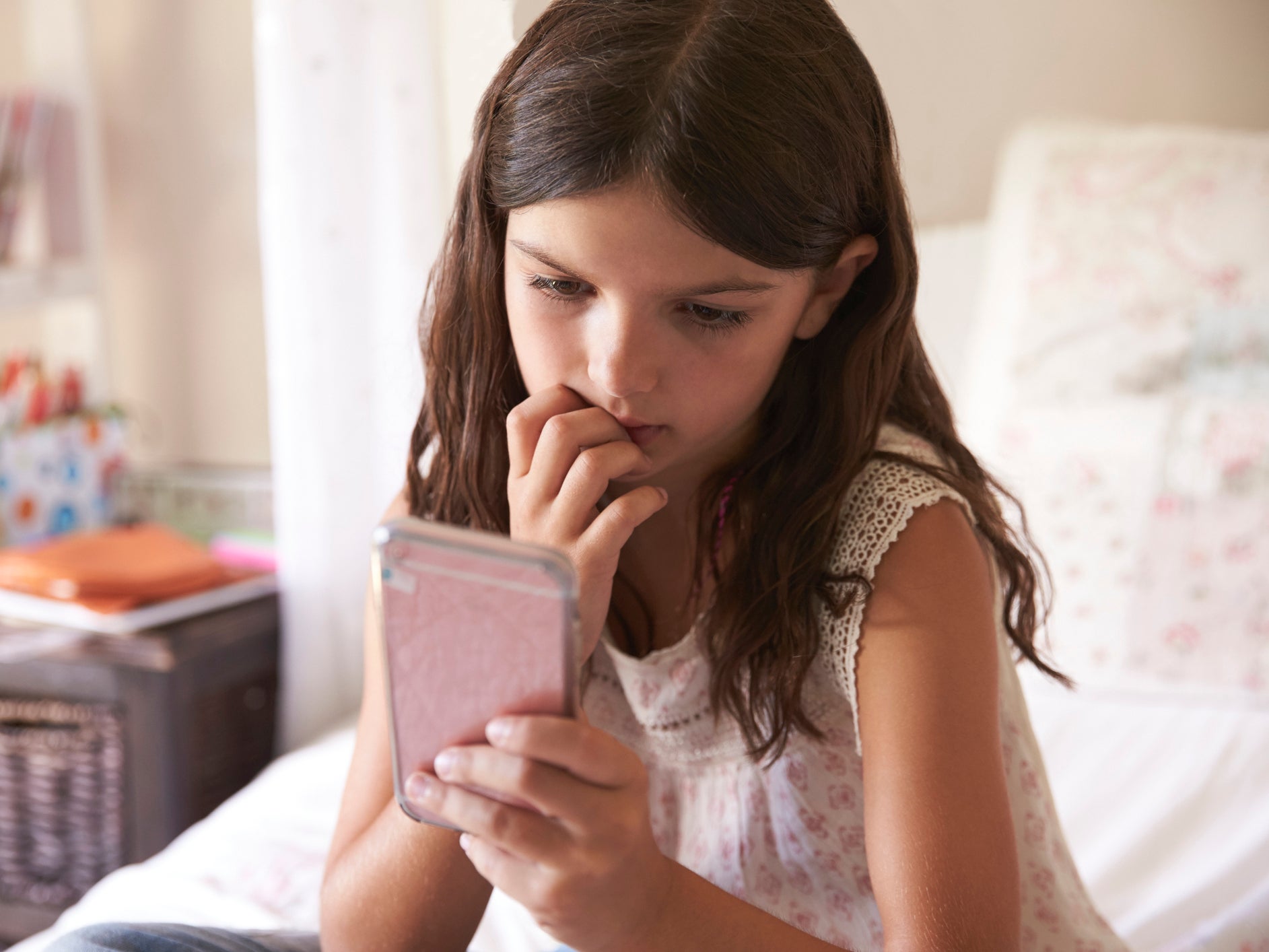Quarter of children experienced cyberbullying in past year, study finds
'It's vital that young users can reap the benefits of going online without being exposed to unacceptable harm'

Your support helps us to tell the story
From reproductive rights to climate change to Big Tech, The Independent is on the ground when the story is developing. Whether it's investigating the financials of Elon Musk's pro-Trump PAC or producing our latest documentary, 'The A Word', which shines a light on the American women fighting for reproductive rights, we know how important it is to parse out the facts from the messaging.
At such a critical moment in US history, we need reporters on the ground. Your donation allows us to keep sending journalists to speak to both sides of the story.
The Independent is trusted by Americans across the entire political spectrum. And unlike many other quality news outlets, we choose not to lock Americans out of our reporting and analysis with paywalls. We believe quality journalism should be available to everyone, paid for by those who can afford it.
Your support makes all the difference.Around one in four children have experienced a form of online abuse in the past 12 months, new research has revealed.
Ofcom, the UK’s communications regulator, conducted a study with the Information Commissioner’s Office (ICO) to identify concerns the nation has about using the Internet.
Their findings, which were published in Ofcom’s first annual Online Nation report, showed that 23 per cent of children have been cyberbullied in the last year, while 39 per cent have been subjected to offensive language online.
Just under one in three children received unwelcome friend requests, while a fifth experienced trolling.
Ofcom and ICO carried out the study by analysing responses from a quantitative study of 2,047 adult Internet users and 1,0001 children aged between 12 and 15.
Almost 80 per cent of the children said they had a “potentially harmful online experience” in the past year.
The majority of these harmful online experiences – 24 per cent – occurred on Facebook, with 12 per cent taking place on Instagram and eight per cent on Snapchat.
Tony Stower, head of child safety online at the NSPCC, said that it’s “vital” for young Internet users to “reap the benefits of going online without being exposed to unacceptable harm”.
“It is blatantly clear that, left to their own devices, tech firms will not protect young users and, once again, we urge the government to move quickly in bringing in robust new laws with tough sanctions for tech firms that fail to keep children safe,” Stower said.
In addition to the extent to which children experience cyberbullying online, the study also delved into the amount of time adults spend browsing the Internet on a daily basis.
The report stated that adults spent an average of three hours and 15 minutes online every day in the past year, an 11-minute increase to the average amount of time spent online in 2017.
Several factors for this increase included the high speed of the Internet, the use of social media platforms such as Facebook and the widespread use of smartphones.
The study revealed that Facebook users spend approximately 23 minutes on the site on a daily basis, equating to just under six days a year.
Seven in 10 of the adults surveyed said they think social media platforms should be better regulated.
However, 59 per cent of the adults expressed their belief that the benefits of going online outweigh the negatives, with 61 per cent of the children agreeing with this point of view.
“As most of us spend more time than ever online, we’re increasingly worried about harmful content – and also more likely to come across it,” said Yih-Choung Teh, group director of strategy and research at Ofcom.
“For most people, those risks are still outweighed by the huge benefits of the Internet.”
The Ofcom group director added that free speech is “on of the Internet’s great strengths”.
For all the latest news on social media, click here.
Join our commenting forum
Join thought-provoking conversations, follow other Independent readers and see their replies
Comments